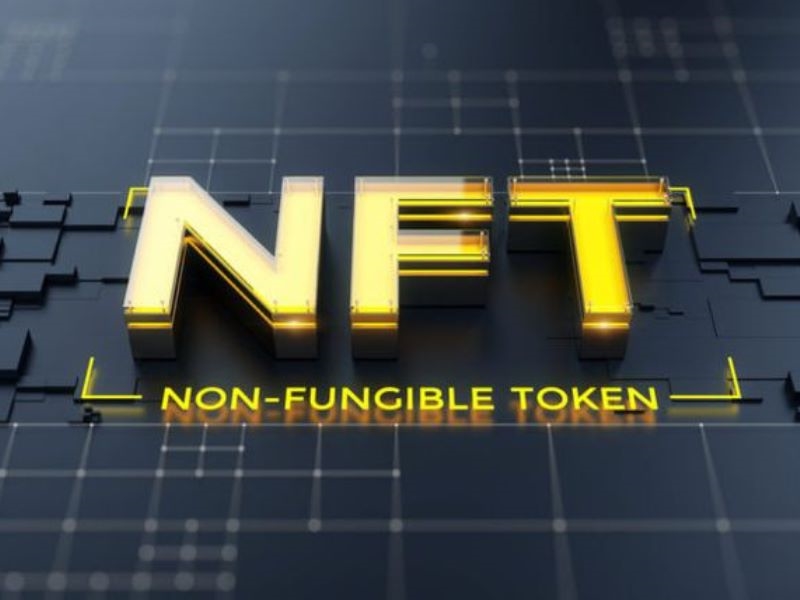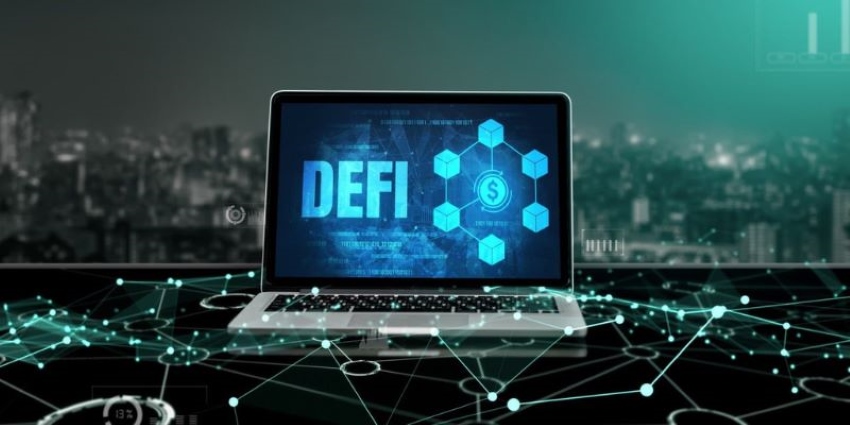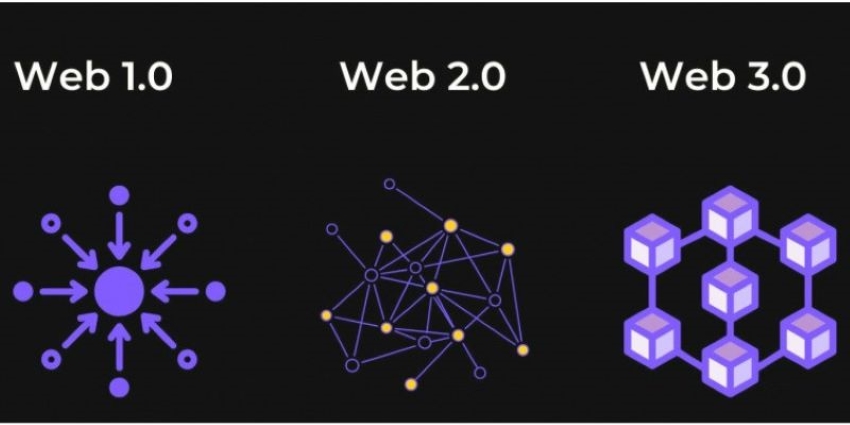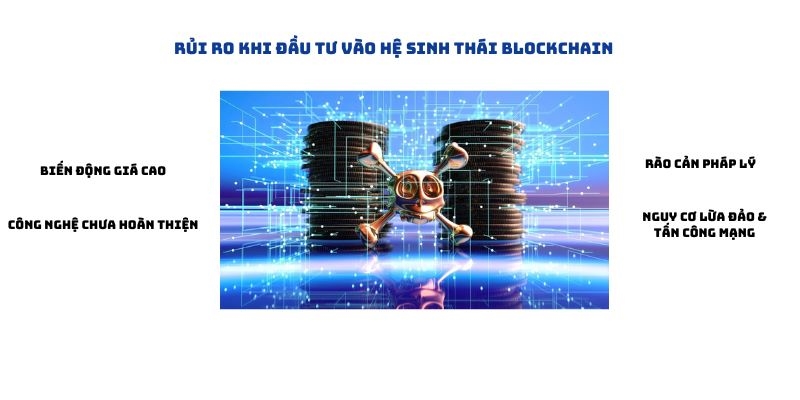Blockchain in Educationhelps to make data transparent, combat fraud and optimize learning management, while opening up opportunities for comprehensive innovation in the education system. So how can blockchain change the future of education?
Blockchain technology, initially widely known in the financial and cryptocurrency fields, is now expanding its application to education, bringing many breakthrough values. Thanks to its ability to store data securely, transparently and immutably, blockchain in education not only helps prevent degree fraud and secure student information, but also streamlines the process of tuition payment, enrollment and scholarship management. This promises to be a major revolution for the global education system, helping to improve the quality of training and create a fairer and more transparent learning environment.
Applications of blockchain in education
1. Make learning management transparent
Blockchain technology offers a breakthrough solution for transparent learning management, completely eliminating the risk of score fraud. Thanks to the ability to record learning results immutably, all information is guaranteed to be absolutely authentic.
Not only stopping at scores, Blockchain also digitizes degrees and certificates, creating a solid “shield” against the problem of fake degrees. Students and employers can easily verify the validity of degrees through this system.
A clear demonstration of the effectiveness of blockchain in education is MIT University. Since 2017, MIT has pioneered the application of this technology to issue digital degrees, bringing convenience and trust to both students and employers.

Massachusetts Institute of Technology pioneers blockchain application in education
Furthermore, Blockchain also has the ability to store detailed learning progress of each student. This helps to track each person's personal development and ability accurately and comprehensively, opening up opportunities for personalizing education and optimizing the learning process.
2. Streamline tuition management
To improve efficiency and transparency in tuition management, the application of blockchain technology, especially smart contracts, is an optimal solution. Smart contracts automate the payment process, reduce errors and enhance security.
Holberton College is a real-world example of how blockchain can be used to manage tuition in a flexible and transparent manner.
Additionally, managing student loans through blockchain also helps ensure transparency in the payment process and minimizes the risk of financial fraud.
3. Improved student data management
Securing student data will facilitate the transfer process, helping students no longer have to worry about complicated administrative procedures.
A typical example is the University of Nicosia, which has applied blockchain technology to manage student records, thereby significantly reducing administrative workload.
Furthermore, the combination of blockchain and artificial intelligence (AI) can provide breakthrough solutions in analyzing learning data. This allows schools to propose personalized learning methods, suitable for the abilities and needs of each student.

University of Nicosia applies blockchain, optimizes student records management & reduces administrative burden.
Blockchain makes education more transparent
1. Anti-academic fraud
Blockchain technology allows for immutable data storage, ensuring the integrity of academic information. Thanks to this, diplomas and certificates are digitized and can be easily checked online without the need for third-party verification.
Typically, some universities in Singapore have pioneered the application of blockchain in the certificate authentication system, contributing to effectively preventing the problem of degree fraud.

Fighting academic cheating is one of the highlights of blockchain
2. Improve fairness in teaching assessment
To improve efficiency and transparency in tuition management, the application of blockchain technology, especially smart contracts, is an optimal solution. Smart contracts automate the payment process, reduce errors and enhance security.
Holberton College is a real-world example of how blockchain can be used to manage tuition in a flexible and transparent manner.
Additionally, managing student loans through blockchain also helps ensure transparency in the payment process and minimizes the risk of financial fraud.
3. Support scientific research and open learning materials
Blockchain provides a secure storage platform for research, ensuring the ability to access information in a transparent and reliable manner. In fact, many educational institutions have begun to apply blockchain to share academic materials for free, facilitating wider access to knowledge.
In addition, blockchain also has the ability to protect scientific research from the risk of being altered or stolen by third parties, contributing to the protection of intellectual property rights and promoting the development of science.
Challenges in implementing blockchain in education
Despite its many benefits, the application of blockchain technology in education still faces certain challenges.
First, building a blockchain infrastructure requires a significant initial investment. Second, many schools currently do not have a team of blockchain experts to deploy and operate the system. Finally, the legal framework for blockchain applications in education is still incomplete, lacking clear and unified policies.
To overcome these obstacles, educational institutions need to proactively cooperate with reputable blockchain technology companies. In addition, implementing small-scale pilot projects before widespread application is also a necessary step.
The Future of Blockchain in Education
Blockchain technology promises to revolutionize the education sector over the next 5-10 years, as more and more schools and institutions become aware of its long-term benefits. According to forecasts from HolonIQ and Gartner, the blockchain in education market could grow at an impressive rate of over 50% per year, with many advanced countries actively implementing application solutions.
Phase 1 (2024-2027): Initial testing and application phase
During this period, leading universities will continue to expand the use of blockchain to issue digital degrees and manage student records. Online courses will integrate blockchain to ensure transparent authenticity of certificates and prevent fraud.
Phase 2 (2027-2032): Popularization and Standardization Phase
Blockchain will become the standard for managing tuition, admissions, and student records at many universities around the world. Smart contracts will be used to automatically award scholarships, ensuring fairness and transparency in the allocation of funding. At the same time, the use of NFTs (Non-Fungible Tokens) to issue unforgeable degrees and skill certificates will also be expanded.

NFTs enable transparent authentication, tamper-proofing, and easy online verification
Blockchain in education not only helps to make data transparent, but also optimizes management and training processes, helps to reduce fraud, improve teaching quality and secure student information. Educational institutions need to quickly learn and deploy blockchain to improve training quality in the digital age. Do you want to update the latest trends in blockchain technology? Read the next articles at ONUS!
Frequently Asked Questions (FAQ)
- How Blockchain Helps Fight Cheating in Education?
Blockchain records data immutably, helping to authenticate learning outcomes, grades, and degrees transparently.
- How can schools apply blockchain to tuition management?
Smart contracts help automate the tuition payment process, reducing errors and fraud.
- Does Blockchain Make It Easier for Students to Transfer Schools?
Yes, student data is stored on the blockchain, making it easy for schools to retrieve and verify information.
- Are digital degrees on blockchain trustworthy?
Completely trustworthy, as data on the blockchain cannot be edited or tampered with.
- How will Blockchain affect recruitment?
Employers can check candidates' qualifications and skills directly on the blockchain, reducing the risk of fraud.
- How can blockchain support scientific research in education?
Blockchain helps store research data securely, transparently, and easily accessible.
- How Can Blockchain Help Improve Scholarships and Education Funding?
Funding organizations can allocate and manage scholarships more transparently thanks to blockchain.
- Have major universities adopted blockchain?
Many universities around the world, such as MIT, University of Nicosia, Holberton School, have implemented blockchain in education management.
- Can Blockchain Help Reduce the Cost of Education?
Yes, blockchain can reduce intermediary costs and optimize the educational process.








